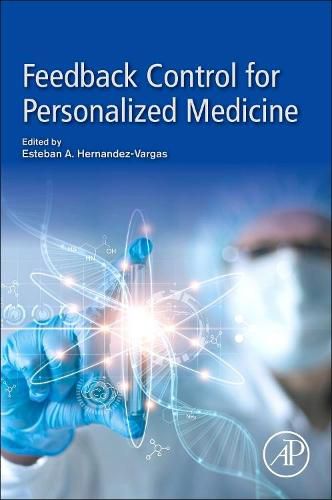Readings Newsletter
Become a Readings Member to make your shopping experience even easier.
Sign in or sign up for free!
You’re not far away from qualifying for FREE standard shipping within Australia
You’ve qualified for FREE standard shipping within Australia
The cart is loading…






Feedback Control for Personalized Medicine provides ideas on ongoing efforts and obstacles by members of the control engineering community in different biological and medical applications. In addition, the book presents key challenges, insights, tools and theoretical developments that arise from personalized medicine, along with medical concepts that are explained by engineers to help non-experts follow research topics. Several clinical trials have tried to find therapeutic approaches to achieve eradication or at least lifelong, therapy-free, host control of the infection. This has been performed integrating clinical observations, empirical knowledge and information from medical tests to treat patients.
As this trial and error approach is becoming more challenging and unfeasible by the steep increase in the number of different pieces of information and the complexity of large datasets, a systematic and tractable approach that integrates a variety of biological and medical research data into mathematical models and computational algorithms is crucial to harness knowledge and to develop new therapies towards personalized medicine.
$9.00 standard shipping within Australia
FREE standard shipping within Australia for orders over $100.00
Express & International shipping calculated at checkout
Feedback Control for Personalized Medicine provides ideas on ongoing efforts and obstacles by members of the control engineering community in different biological and medical applications. In addition, the book presents key challenges, insights, tools and theoretical developments that arise from personalized medicine, along with medical concepts that are explained by engineers to help non-experts follow research topics. Several clinical trials have tried to find therapeutic approaches to achieve eradication or at least lifelong, therapy-free, host control of the infection. This has been performed integrating clinical observations, empirical knowledge and information from medical tests to treat patients.
As this trial and error approach is becoming more challenging and unfeasible by the steep increase in the number of different pieces of information and the complexity of large datasets, a systematic and tractable approach that integrates a variety of biological and medical research data into mathematical models and computational algorithms is crucial to harness knowledge and to develop new therapies towards personalized medicine.